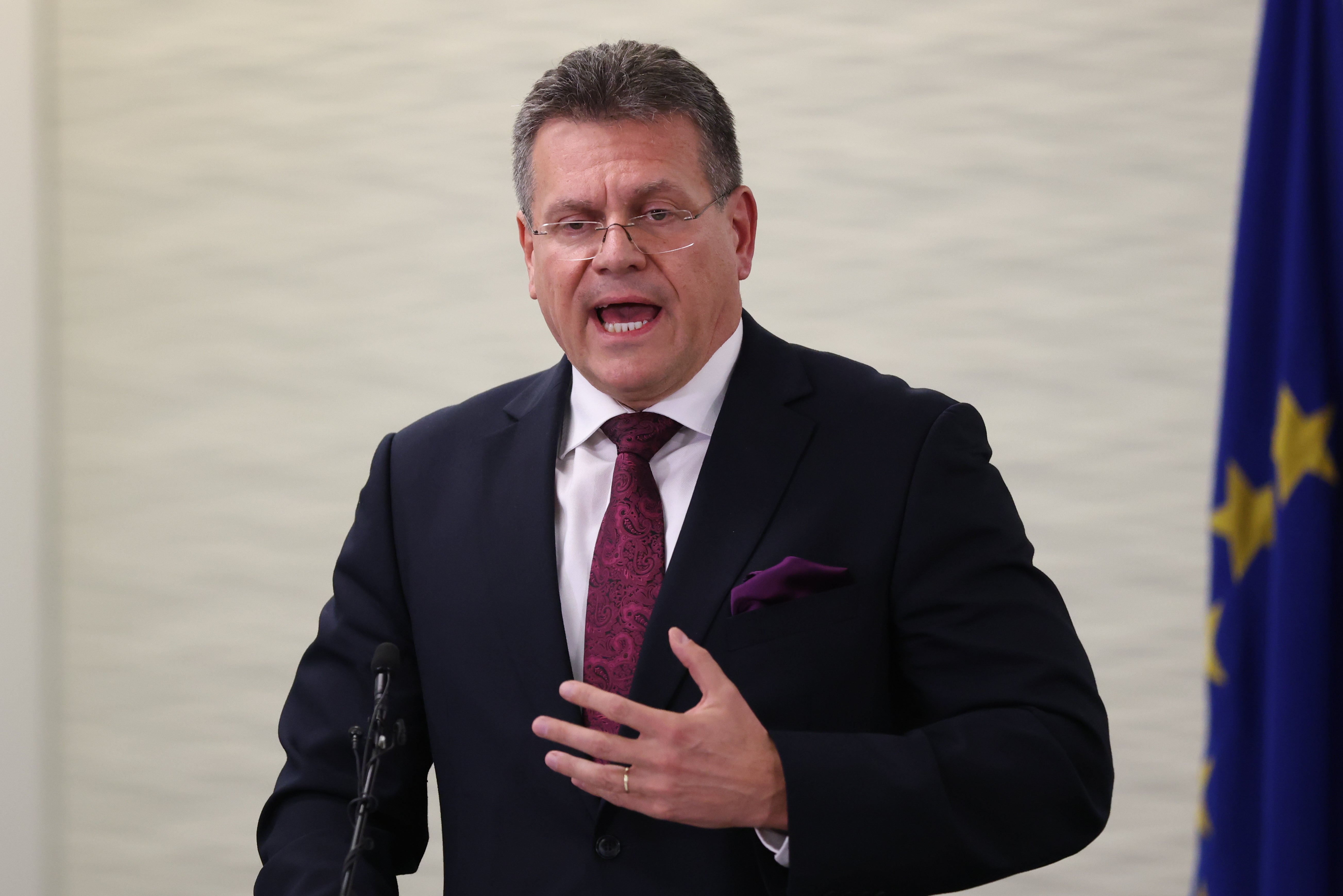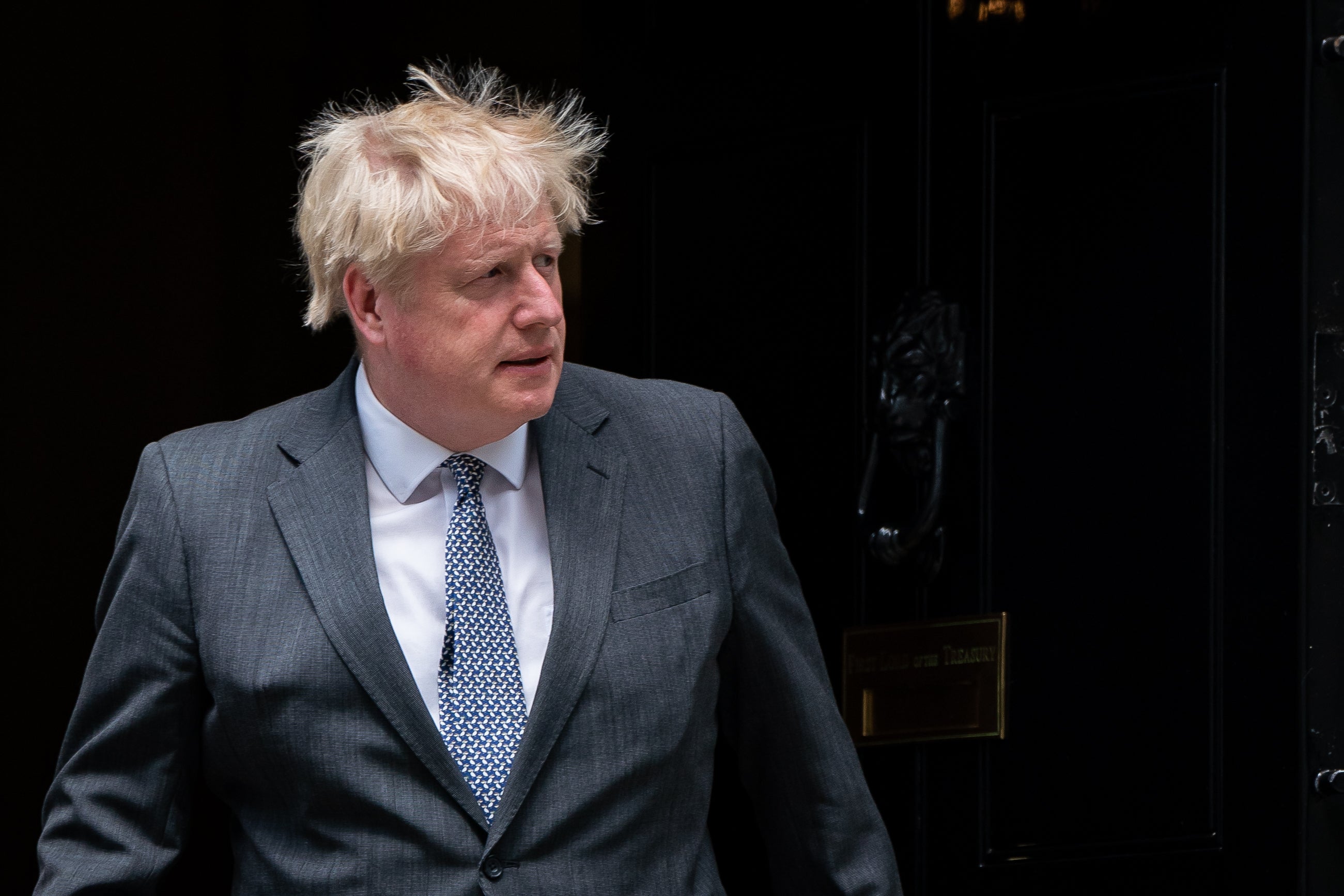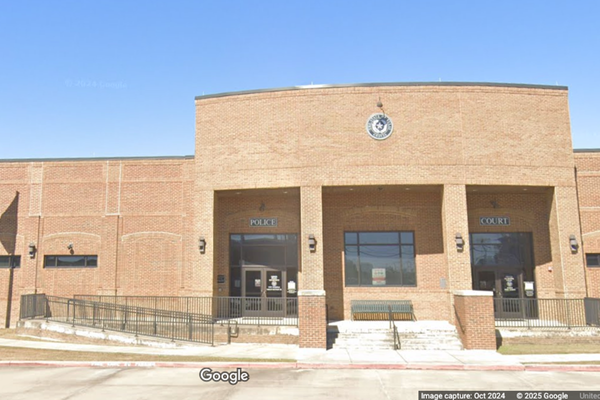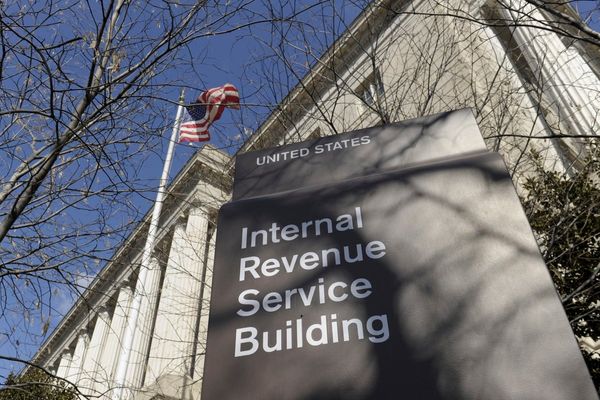
Foreign Secretary Liz Truss said there was “absolutely no reason” for the European Union to retaliate against the UK after plans to tear up the Northern Ireland Protocol caused outrage in Brussels and capitals across the bloc.
Ireland’s Foreign Affairs Minister Simon Coveney warned the UK Government’s move could “destabilise” the situation in Northern Ireland and was undermining the work that led to the Brexit agreement with the EU.
The UK faces renewed legal action from Brussels after the move to override large parts of the international deal which was struck over Northern Ireland’s post-Brexit trading arrangements.
But Ms Truss told Times Radio: “Our solution doesn’t make the EU any worse off. We continue to protect the single market, we’re supplying the EU with data, we’ve got strong enforcement to make sure companies aren’t violating the rules.
“So there is absolutely no reason why the EU should react in a negative way to what we’re doing.”
The UK has argued that the measures to remove checks on goods and animal and plant products travelling from Great Britain to Northern Ireland are necessary to safeguard the Good Friday Agreement and peace and stability.
The imposition of checks between Great Britain and Northern Ireland in order to keep an open border with Ireland has angered unionists.
Ms Truss told the BBC Good Morning Ulster programme: “The reason that we feel that we absolutely had to take action is because of the situation in Northern Ireland.
“The fact is that the Belfast/Good Friday Agreement is being undermined. We haven’t seen an Executive formed since February, we have seen east-west trade diminished, trade diverted to north-south. We’ve also seen the people of Northern Ireland not able to benefit from tax breaks.
“These are all issues that we need to sort out. Our preference is to sort them out with the EU, but as yet the EU are not agreeing to change the text of the protocol.”
But Mr Coveney told the same programme “it is going to destabilise what is already a difficult situation” and urged Ms Truss to “focus on negotiations with the EU who want to compromise and want to respond to unionist concerns”.
He said: “What the British Government is proposing to do is dismantle the protocol, which is international law, which was carefully put together over a number of years through painstaking negotiation involving this British Prime Minister to solve or to manage the disruption of Brexit on the island of Ireland as best we could.
“The British Government is now looking to undermine all of that work for whatever political reason.”
He told BBC Radio 4’s Today: “This, I think, is really a new low in British-Irish relations, certainly, I think in the last 25 years or so.”
The European Commission responded to the publication on Monday of the Northern Ireland Protocol Bill with an announcement that it intends to reopen legal action against the UK which has been on hold since September.
Commission vice president Maros Sefcovic hinted at further measures, saying the unliteral action by the UK had undermined the trust needed for the effective operation of its post-Brexit trade deal with Brussels.

That anger was reflected in statements from Paris and Berlin, with Germany’s ambassador to the UK Miguel Berger saying “we deeply regret that the British Government has decided to unilaterally break the agreement” on the protocol.
But the Government will draw some comfort from the measured response from the White House, where President Joe Biden, who has Irish roots, takes a close interest in issues relating to the Good Friday Agreement.
White House press secretary Karine Jean-Pierre suggested the dispute would not be an impediment to US-UK trade talks.
But she called for a negotiated settlement between the UK and EU.
“We recognise there have been challenges over the implementation of the Northern Ireland Protocol,” she said.
“We urge the UK and the EU to return to talks to resolve these differences. ”
Business leaders urged Boris Johnson not to enter a “damaging trade war” with the EU over the issue.

The Prime Minister insisted the Bill contained only minor, bureaucratic changes while Downing Street said it was an “insurance mechanism” in case a negotiated agreement with the EU could not be found.
However Stephen Phipson, chief executive of Make UK, the manufacturers’ organisation, said business needed both sides to urgently get round the negotiating table to agree a “pragmatic” settlement.
“We recognise that the protocol in the current state does need to be changed,” he said.
“But the way to do this is not to start a trade war with the EU in the middle of a financial crisis which would be damaging for both British and EU businesses alike and put further strain on already stretched supply chains.”
Richard Burge, chief executive of the London Chamber of Commerce and Industry, said the Government’s action risked “significant harm” to businesses across the UK.
“Getting Brexit done was at least meant to deliver certainty to businesses after years of waiting for clarity on the future of the UK’s trade relations with the European Union,” he said.
“The introduction of this Bill means we are now teetering on the brink of a trade war with the EU and that will mean further economic pain and falls in investment.”







